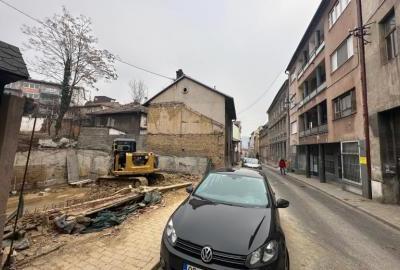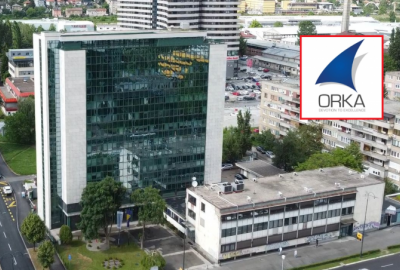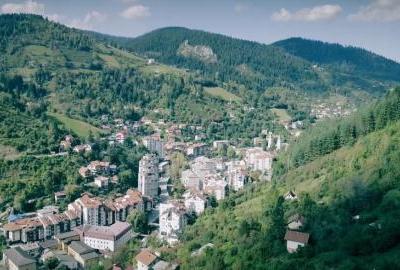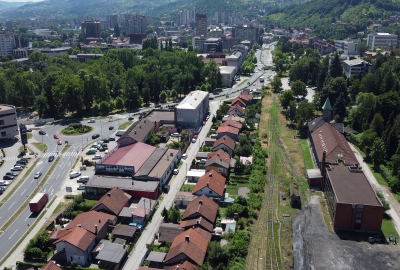Žurnal in English
WHO STOPPED THE INVESTIGATION INTO THE OPERATIONS OF IRB RS: Loans, Credits, and Advances to Privileged Companies Lost Forever!
Who were the beneficiaries of IRB loans, how much money was allocated for this purpose, under what conditions, and how much of the approved loans (both principal and interest) have been repaid? The public will likely never fully know the answers. Yet, the funds distributed generously to privileged companies were public money belonging to all citizens of the RS.
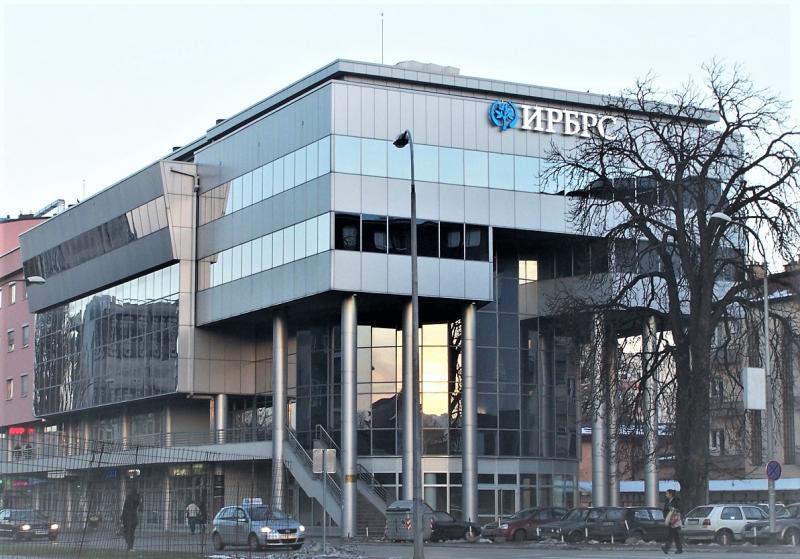
In October last year, the Government of Republika Srpska decided to remove the burden of uncollected claims from the business balance sheet of the Investment-Development Bank of Republika Srpska (IRB). These claims originated during a period when the Large Credit Board generously distributed multi-million loans, primarily to companies whose owners maintained friendly and close business ties with the political elite of this Bosnian entity.
Nearly 180 million KM of such disbursed funds could not be recovered. Consequently, after receiving the green light from the Government of RS, the IRB published a public notice on 14 October 2023, offering claims worth almost 180 million KM from the Development and Employment Fund for sale, as these had not been collected in the preceding period.
“The nominal value of the claims from the portfolio amounts to 125,533,870 KM as of 31 July 2023 (hereinafter referred to as the 'Cut-off Date'), with an additional calculated default interest of 54,146,528 KM up to the cut-off date,” stated the public notice.
It was emphasised that the portfolio comprises 41 loan agreements involving 37 debtors, with a total nominal value of 125,533,870 KM. Among these, ten loan agreements, amounting to a nominal value of 16,868,955 KM, were not secured in any way—neither through liens on real estate nor movable assets. The remaining loans, as noted, were secured either by mortgages on real estate or by liens on movable assets or equipment.
Stevanović: We Are Not Magicians, but Micro-Surgeons Who Have Completed the Operation
The IRB, backed by the entire state apparatus and mechanisms of power, failed to recover these claims. However, the Bijeljina-based company “Standard Prva” Ltd., has done so quite skilfully, having purchased 180 million KM of IRB’s outstanding claims for merely 32 million KM. The founder of "Standard Prva" is "Standard Group" Ltd. Bijeljina, owned by lawyer Miloš Stevanović. This raises the logical question: how does a relatively small accounting company with limited financial resources manage to collect debts that a bank, supported by the RS Government, could not recover for years?
It also raises the question: is there a business or financial agreement between lawyer Stevanović and individuals within or close to the RS Government?
“These are speculations. Debt purchasing from banks is standard practice, although, unfortunately, not common here. When we came up with the idea to participate in this process, our company gathered funds from various sources, including investors, and completed the acquisition. There are regular, legal financial flows that enabled us to make this purchase,” Stevanović stated for Žurnal.
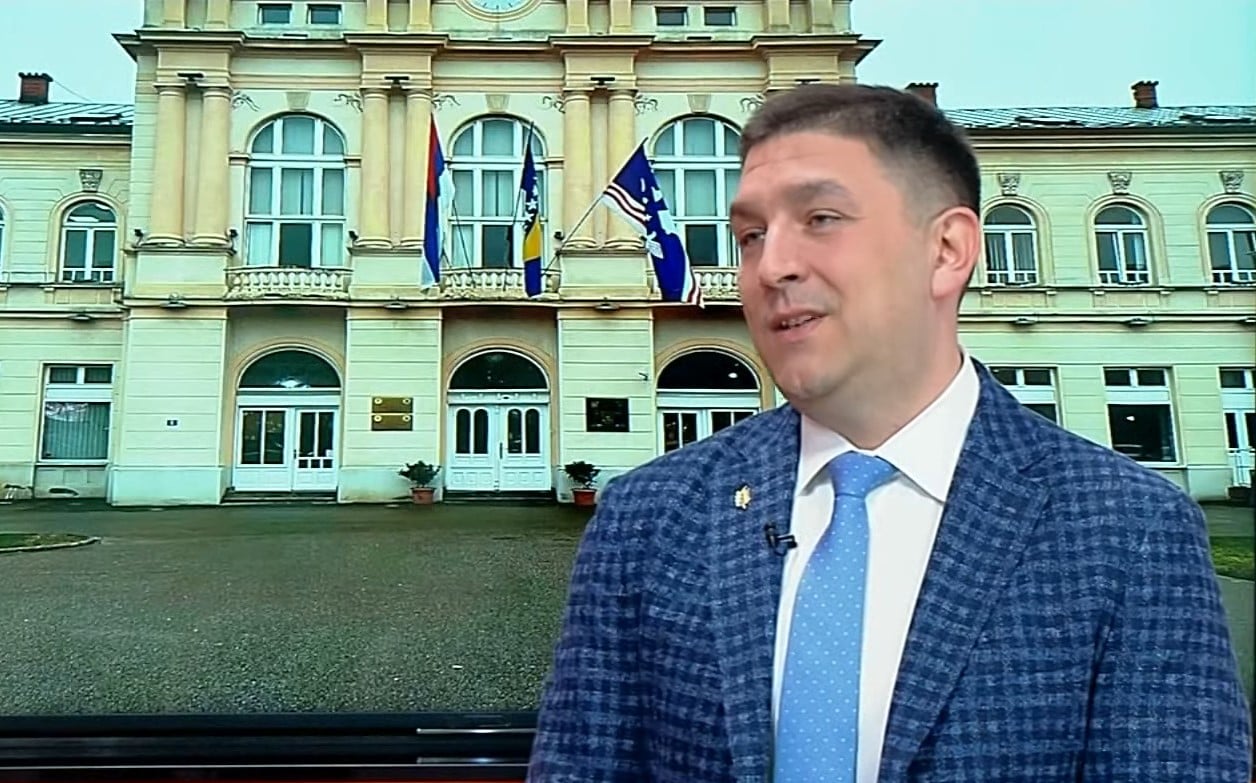
When confronted with the observation that it is indeed peculiar that the IRB failed to recover these claims while his firm succeeded, Stevanović explained that his lawyers are not “magicians,” as recently mentioned during a session of the RS National Assembly discussing the IRB’s operations. Instead, he attributed it to well-thought-out strategies.
“These cases had been stuck in court for years, with many of them reaching some form of conclusion only after a very long time. We simply acted as micro-surgeons and completed tasks that should have been resolved ages ago. These loans are backed by strong collateral, including numerous mortgages, promissory notes, and co-guarantors. It was relatively straightforward to tie everything together and secure repayment,” said Stevanović.
If it was all so straightforward, as he claims, why didn’t the IRB collect these debts themselves? Instead, they sold 180 million KM of uncollectable loans to his firm for just 32 million KM, resulting in a loss of 140 million KM for the IRB and, by extension, for all RS citizens.
“The IRB, a giant institution, couldn’t collect 180 million KM in credit claims. Then along comes Miloš Stevanović, a private individual, who purchases these ‘uncollectable’ claims for 32 million and proceeds to collect them without issue. The 140 million KM shortfall—the difference between the uncollectable claims and the price Stevanović paid—directly impacts the pockets of all RS citizens. During the National Assembly session, I asked a simple question: why wasn’t Stevanović appointed acting director of the IRB since he apparently knows how to recover debts that the IRB couldn’t collect for years?” said Ognjen Bodiroga, head of the Serbian Democratic Party (SDS) parliamentary caucus in the RS Parliament, in a statement to Žurnal.
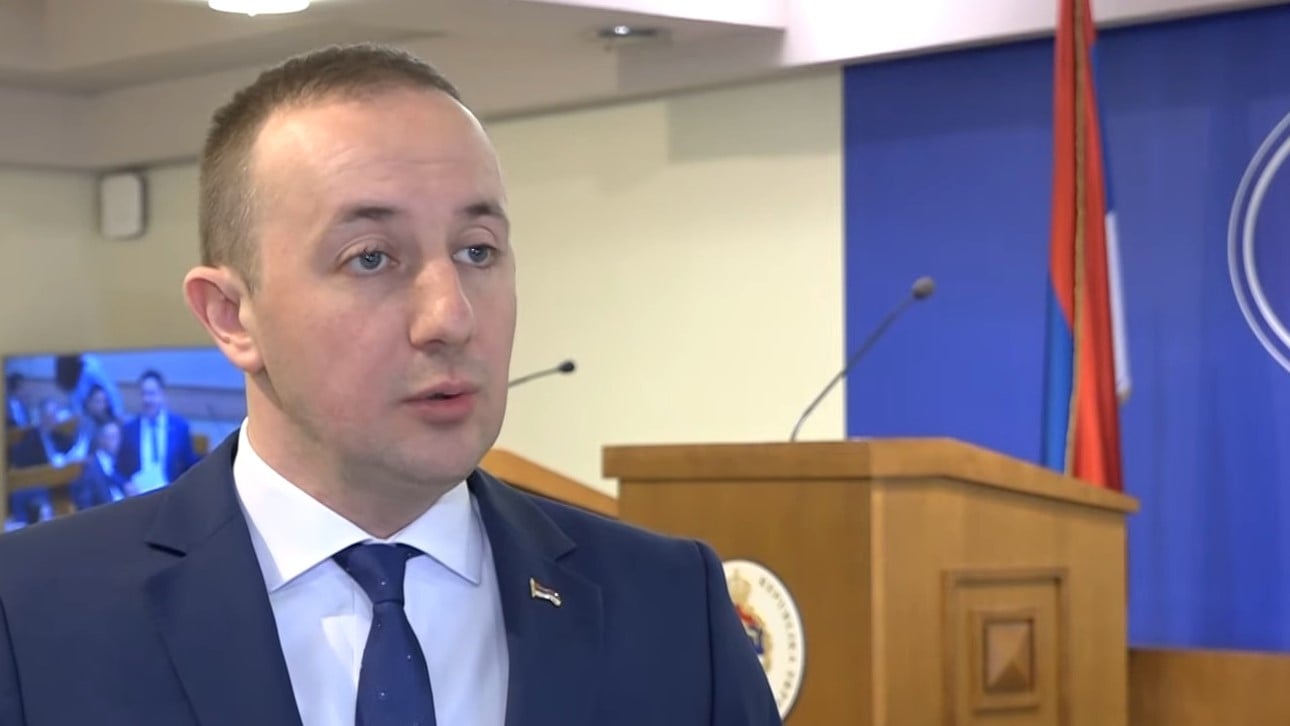
IRB: Everything Done in Accordance with the Law!
The IRB RS asserts that all activities related to the sale of uncollectable claims were conducted in compliance with the legal framework "relevant to this area and regulating matters significant for their sale." In their response to Žurnal, they reminded that in March 2023, the RS National Assembly adopted amendments to the Law on the Development and Employment Fund of RS. These amendments enabled the Fund to sell uncollectable claims, and the entity government, in June last year, established the Rules on the Sale of Claims from Placements. These rules outlined the scope of claims for sale, decision-making responsibilities, sale agreements, conditions for claim purchasers, the sale process, and other related issues.
Following a public procurement procedure, the IRB engaged the consultancy firm “Deloitte Advisory” from Belgrade, which assessed the value of each individual disputed claim, providing an evaluation of the overall portfolio value.
“The engagement of a renowned consultancy firm with extensive experience in providing these and similar advisory services regionally and internationally aimed to eliminate any legal uncertainties regarding the correctness and legality of the claim sale process. The quality and reliability of the chosen consultancy's expertise are underscored by the fact that Deloitte, along with Ernst & Young, KPMG, and PricewaterhouseCoopers, forms the so-called Big Four, covering nearly 95% of the global market for these services,” the IRB stated.
The IRB further noted that additional confirmation of the formal correctness of the procedure was secured through a positive legal opinion on the documentation accompanying the public sale process, provided by a specialised law firm for such matters. They emphasised that the majority of debtors whose claims were included in the portfolio offered for sale were already in liquidation or bankruptcy proceedings. By the time of the sale, the IRB had “exhausted all legally permitted measures and actions to protect the interests and claims of the Development and Employment Fund of RS,” including multi-year court proceedings.
The IRB considers the sale of 180 million KM in uncollectable claims for 32 million KM to the company "Standard Prva" a well-executed acquisition.
"Taking into account that all formal requirements of the claims sale process were fully met, that this is a standard practice for financial institutions, and the fact that the purchase price exceeded the value of the claims as assessed by the engaged consultancy firm, we believe that the interests of the Development and Employment Fund of RS and the RS itself have not been harmed in any way. Furthermore, the recovery rate achieved through this sale is far above the typical recovery rates for such transactions, which, according to the latest research by the consultancy firm involved, range from 1.3% to 21.9%," the IRB stated.
Questions regarding the unfavourable sale of IRB's uncollectable claims were also directed to RS Prime Minister Radovan Višković. However, as with previous instances, no response was received.
Loser or Winner?
Lawyer Miloš Stevanović explains that collecting uncollectable claims does not necessarily mean receiving immediate cash payments.
"Collection also involves taking ownership of properties, acquiring valuable machinery, or completing a business process," says Stevanović.
His firm has already managed to recover some claims, such as those from the sale of the "Vučko" apartments on Jahorina, and a 19.4 million KM loan that the IRB approved for “Energolinija” in Zvornik, a company connected to Alumina during Aleksandar Džombić's tenure as the Prime Minister of RS. A court case was initiated against Džombić over this controversial loan, but he was acquitted of all charges.
Stevanović disagrees with the view that the IRB lost 140 million KM in the transaction. In fact, he believes the IRB benefitted.
"Our stance is this: the IRB has gained from this. We purchased assets valued at 180 million KM, but they received 35 million KM in cash. Now they can boast, saying, 'We finished this year with 35 million KM in profit.' I would say that we helped the IRB conclude certain business processes and present itself as a successful bank," Stevanović emphasises.
He argues that the uncollectable claims on the IRB's balance sheet were a significant burden and that if his firm had not purchased them, it would have jeopardised the bank's ability to function normally. Stevanović also mentioned that opposition MPs in the RS parliament had jokingly proposed him as the director of the IRB, implying that he had succeeded where a state-backed bank had failed for years.
The IRB highlights that, from the perspective of potential buyers, the sale of uncollectable claims was conducted entirely transparently. They assert that all relevant documentation regarding the claims offered for sale was made available to interested buyers, with full adherence to requirements and obligations regarding data confidentiality for all parties involved in the process.
Transparency is absent when it comes to revealing who the debtors are, whose claims were purchased from the IRB by the company "Standard Prva," and the exact amounts of their individual debts. The IRB cites confidentiality agreements that bind both parties—the buyer and the IRB as the authorised seller. Additionally, they emphasise that the contract of sale, tender documentation, and all related information fall under the category of confidential data and constitute trade secrets.
Ognjen Bodiroga highlighted that the IRB failed to provide the list of companies with uncollectable claims to the former head of the SDS Parliamentary Club, Vukota Govedarica, citing the law on data secrecy. This, he argued, further indicates dubious activities in this case.
A Fund Acting Like a Commercial Bank
Economist Zoran Pavlović reminds us that the non-performing loans sold by the IRB originated during the era of the IRB's Grand Credit Committee, established by the RS government.
“In this Grand Credit Committee were representatives of the government, the prime minister, and certain ministers, who essentially approved large loans for specific companies. Sometimes these companies provided mortgages as guarantees for loan repayment, and sometimes they did not. At one point, even movable property—such as trucks and vehicle fleets—was accepted as collateral. Then, the World Bank intervened, stating that such practices constituted banking activities, which the IRB, as a fund, was not authorised to conduct. The World Bank demanded that the RS government dissolve the Grand Credit Committee and cease these activities, which is what ultimately happened. Essentially, what the IRB has now sold is a collection of loans distributed in this manner during the time when the Grand Credit Committee was deciding on them,” Pavlović explained to Žurnal.
It is unlikely anyone will be held accountable for the loss of 140 million KM incurred due to granting loans to companies without prior analysis of their solvency or adequate guarantees of repayment.
The IRB RS is a fund, not a commercial bank, and thus is not obligated to maintain positive financial results to continue operating. The likelihood of personal accountability for the lost funds—whether by the IRB’s leadership from its inception to the present or by the prime ministers and ministers in the Grand Credit Committee who approved million-KM loans, often to politically affiliated companies—is minimal. In the current functioning framework of Republika Srpska, the concept of accountability for public officials is nearly non-existent.
Several years ago, it was reported in Bosnian media that the BiH Prosecutor’s Office opened an investigation against IRB RS officials and members of the former Grand Credit Committee for misusing funds from the European Investment Bank (EIB) to approve loans for privileged companies.
At the end of 2016, the EIB reported the IRB RS to the BiH Prosecutor’s Office for misappropriating approximately 100 million KM of credit funds that the bank had allocated in 2011 as a credit line for financing small and medium-sized enterprises. However, the IRB distributed these loans to companies close to the authorities.
“According to the BiH Prosecutor’s Office records, there are no open cases related to the Investment and Development Bank of RS. The cases previously under investigation were archived in 2013 and 2016,” the BiH Prosecutor’s Office responded to Žurnal.
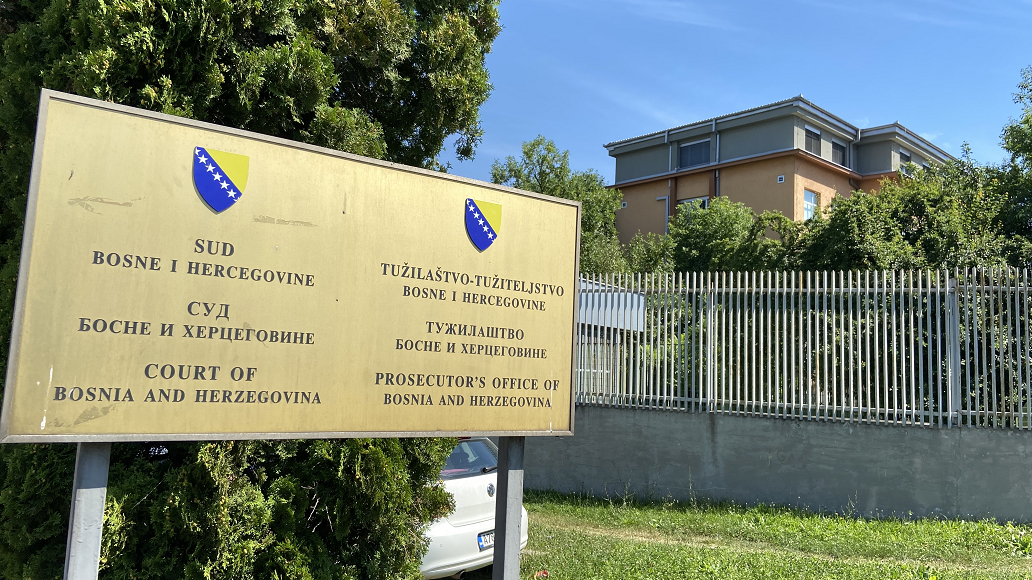
Loans, Credits, and Advances to "Court Companies"
The Investment and Development Bank of Republika Srpska (IRB RS) was established on the 6th of December 2006, fully owned by the RS, and its primary role is to manage the funds of Republika Srpska with the aim of preserving and increasing the value of their portfolios. IRB RS is also responsible for providing financial support to development projects through crediting, and it can trade in securities. Economists note that IRB RS is not a bank in the true sense of the word, but rather a fund that disburses its funds to users through commercial banks.
Immediately after the establishment of IRB RS, those in power realised that there was a considerable amount of money in the bank, so they devised a way to give those funds to companies of "special importance". To do so, they decided to form a Large Credit Committee, which includes representatives of the RS Government, with the Prime Minister at its head as the Chairman of the IRB Assembly. They then started approving millions in loans to privileged companies without adequate security for the invested money, leading to these funds never being repaid into the accounts of IRB. In addition to the controversial loans, IRB RS has, since its inception, provided certain companies with loans and granted them credit funds without the involvement of commercial banks.
Until May 2012, IRB RS only disbursed its loans through commercial banks, which assumed the risk of these loans. From May 2012, so-called direct placements began, without a financial intermediary, initially in the form of loans to certain private companies and later as advances. Between September 2019 and the beginning of 2022, IRB approved a total of nine loans, amounting to approximately 37.6 million KM. The first loan, in the amount of ten million, was approved while Snežana Vujnić was the director of IRB RS. She signed loans worth tens of millions of KM during her tenure as director from 2016 to 2020, even though she had not been formally appointed, not even as an acting director.
The green light for the other loans was given by former director Dražen Vrhovac, who, after being dismissed by the RS Government, disappeared without a trace.
"The question is where is Dražen Vrhovac, why doesn’t he attend the sessions of the National Assembly in which he is a member, and why hasn’t he submitted a report on his activities while he was the acting director of IRB," says SDS MP Ognjen Bodiroga.
He also adds that the diploma held by Vrhovac is questionable, as well as how the former director of IRB acquired numerous properties. The World Bank had previously raised concerns that IRB, which was established as a Fund, was behaving like a bank, requesting the RS authorities to clarify whether IRB RS would remain a Fund or become a commercial bank under the supervision of the RS Banking Agency.
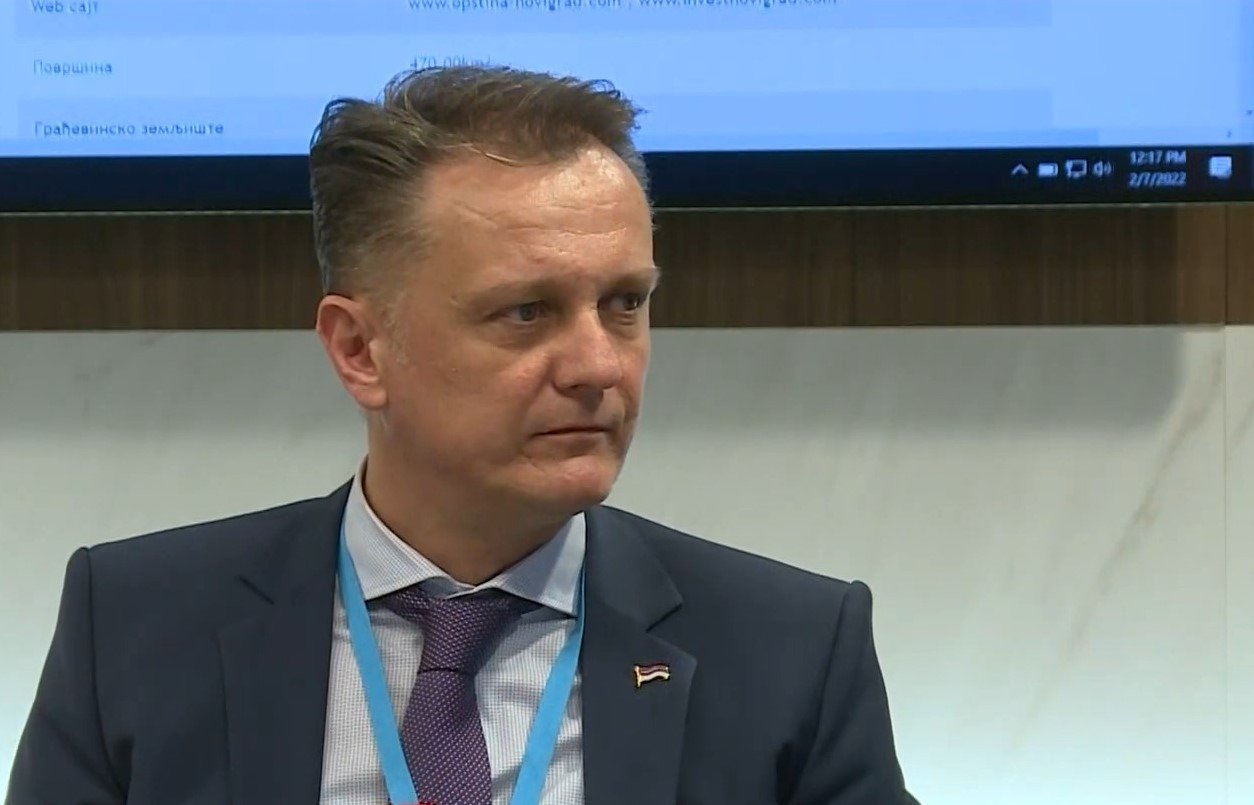
Among the companies that received loans from IRB are the bankrupt "Farmland," owned by Dragan Vasiljević, who also owns real estate at some of the most attractive destinations in Florida; "Niskogradnja" Laktaši, owned by Ljubo Ćubić; "Dobojinex"; "Prijedor-putevi"… This practice continued during the mandate of Dražen Vrhovac, who approved millions in loans to the Laktaši-based company "Kaldera Company." In late 2019, 65% of Kaldera’s shares were purchased by "Prointer ITSS," a company owned by Milenko Čičić. These two companies, due to the corrupt activities of Milorad Dodik and his son Igor, were placed on the US "blacklist," which led banks to close their accounts, causing them to cease operations.
IRB also invested a significant portion of its funds into bonds. Municipal bonds, primarily issued by municipalities governed by the Alliance of Independent Social Democrats (SNSD) of Milorad Dodik, were part of this. The issuance of bonds became a new way for local communities in RS to incur debt. IRB RS also invested in corporate bonds issued by certain companies, including bankrupt public enterprises, such as the Banja Luka and Prijedor heating plants and the Olympic Center Jahorina, as well as private firms whose owners are closely connected to the ruling elite in RS, such as "Farmland," "Kaldera," and the department store "Boska," whose owner Dragan Đurić was accused of organized crime in Serbia. The company "Integral Engineering" received a loan of 17 million KM from IRB, 12 million KM of which was granted directly without a financial intermediary.
We asked IRB RS about the total amount of credit issued directly to companies, without commercial banks as intermediaries, since its inception, as well as the total amount of non-performing receivables incurred as a result. They responded that the total amount of placements made without financial intermediaries from 2006 to the present was 920 million KM.
"In the observed period, the amount of non-performing receivables is within the average for the banking sector in Republika Srpska, based on the reports of the Banking Agency of Republika Srpska," they stated in their response.
They further claimed that since 2016, IRB has not granted any direct loans.
The Transformation Plan – From a Fund to a Commercial Bank
On 4 July, the National Assembly of Republika Srpska adopted amendments to a set of laws in an expedited procedure, paving the way for IRB to perform payment transactions and accept deposits, effectively transforming it into a commercial bank. The government of RS decided on this move following the imposition of sanctions in June 2023, when seven companies and two individuals, linked to Milorad Dodik's family, were added to the US Department of the Treasury's Office of Foreign Assets Control (OFAC) "blacklist." The project of transforming IRB from an investment and development fund into a commercial bank was conceived—though not yet implemented—exclusively to enable sanctioned companies to open accounts at IRB after changing their founders, management, and names, presenting themselves as new business entities.
Economist Zoran Pavlović assessed for Žurnal that the authorities of RS would not risk allowing sanctioned individuals and companies to open accounts at IRB, as this would automatically mean IRB would be added to the OFAC list, ceasing any financial transactions with the institution.
"What is certain is that any conversion of IRB into an organization that would deal with payment transactions involves a procedure that cannot be completed in half a year. Additionally, it must be approved by the Central Bank of Bosnia and Herzegovina. For a bank to be registered, among other conditions required in BiH, which are verified by the Central Bank of BiH, is obtaining a SWIFT code for operations," said Pavlović.
"Our impression is that IRB will face the same fate as many public enterprises in RS, which are on the verge of collapse. This is a major scandal that will eventually be exposed, and it is a result of the current government, which is leading the entire RS towards ruin," said Ognjen Bodiroga.
Who the beneficiaries of IRB loans were, how much money was given, under what conditions, and how much of the loan principal and interest has been repaid is information the public will likely never fully know. Despite this, the funds given to privileged companies belong to the public and should be considered the property of all citizens of RS.
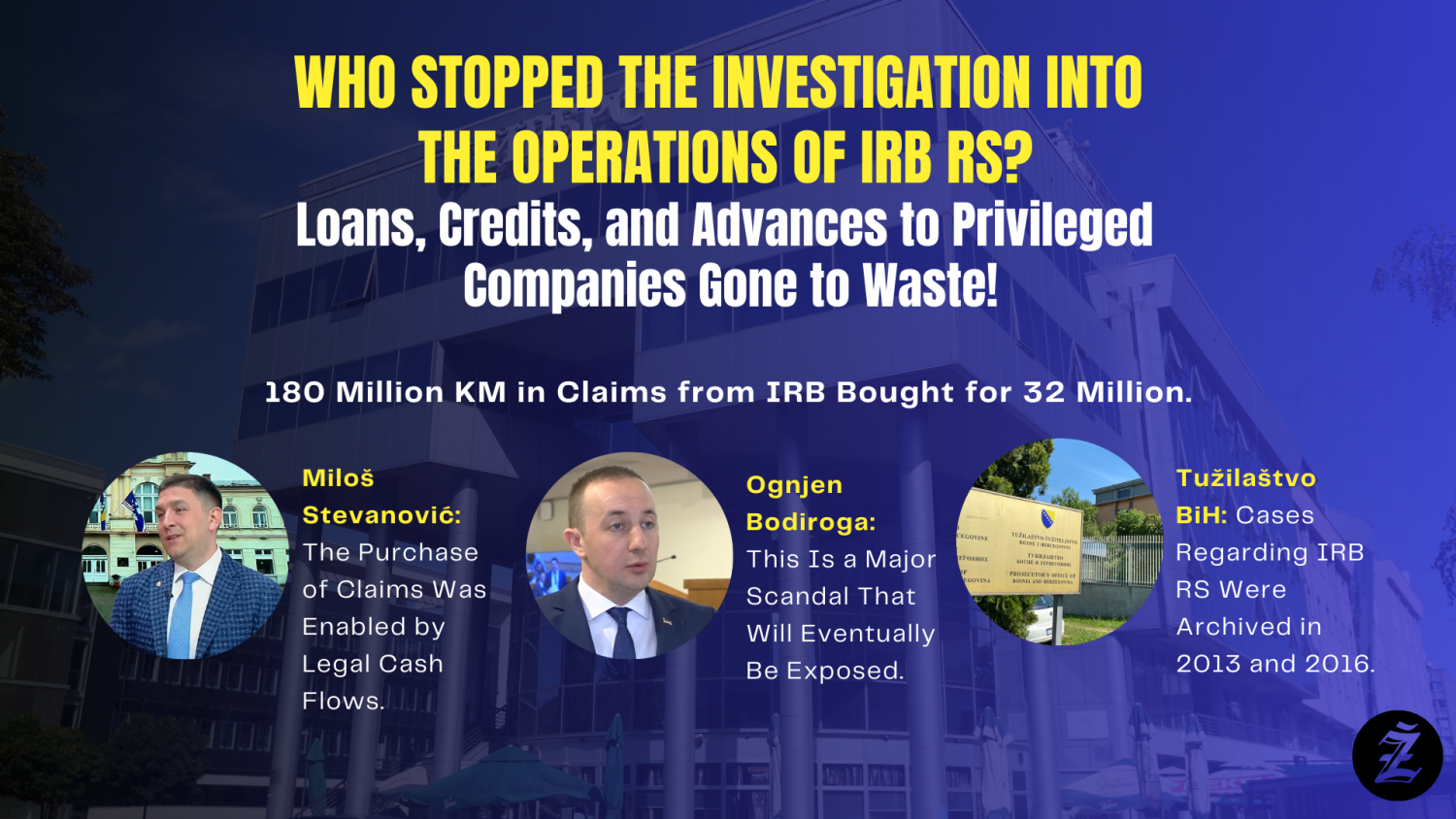
(zurnal.info)





